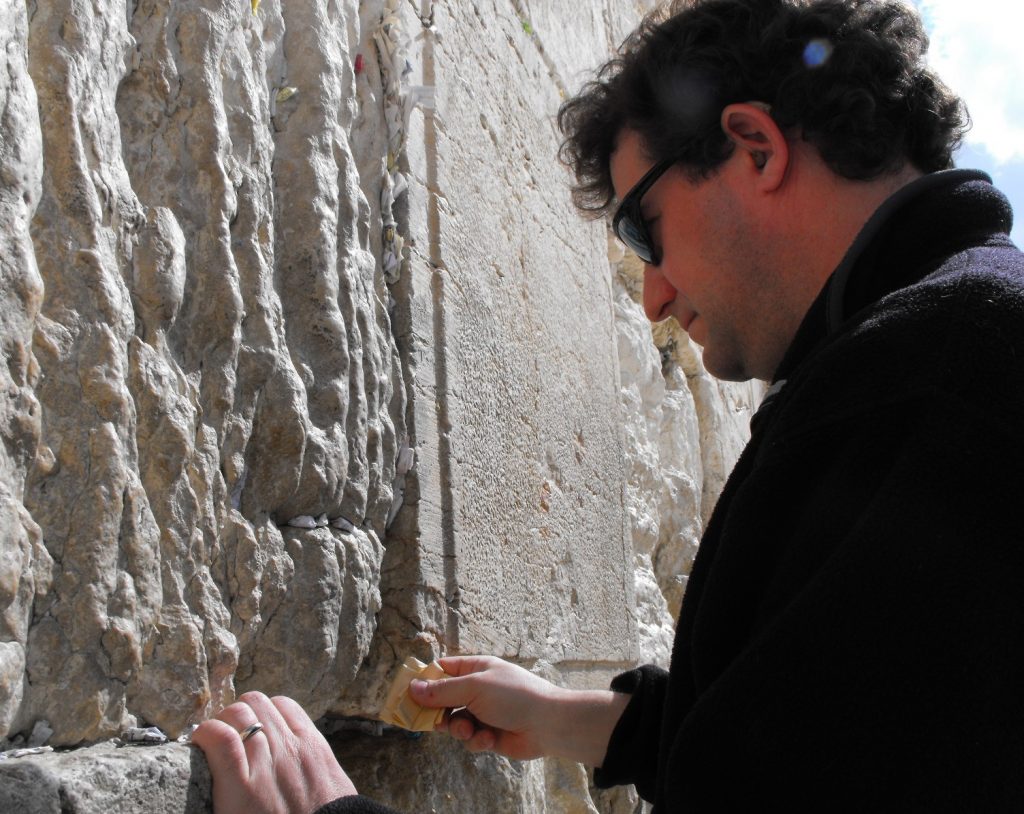“Israel wants and needs a strong Diaspora community, but often takes its support for granted (especially when it disenfranchises non-Orthodox Jews within its borders).”
The Interviewee – Neal Gold (Born 1970), National Director of Content & Programming, ARZA (The Association of Reform Zionists of America). I live in Natick, Massachusetts.
ARZA is the ZIonist arm of the Reform Jewish movement in America. It aims to promote Israel connections, education, and advocacy in Reform communities throughout America. Simultaneously, it works to support the Israel Movement for Reform and Progressive Judaism and, more broadly, works towards a more secure, pluralistic, and inclusive Israel.
In your opinion, what importance, if any, does the existence of a Jewish state have to you personally and to Jewish people in general?
“Very high importance to me personally & to the Jewish people in general.”
Do you feel committed in some way to defend the future existence of Israel?
“Yes, very strongly.”
Do you affiliate yourself with a specific denomination in Judaism? What is your view regarding the dominance of the Orthodox denomination in Israel religious establishment?
“I am affiliated with Reform Judaism. I believe that the dominance of ultra-Orthodoxy and the Chief Rabbinate in particular is as disaster for Israel, and the cause of one of the biggest schisms between Israelis and Diaspora Jews. Full recognition of non-Orthodox streams of Judaism should be an Israeli imperative.”
Do you feel morally responsible for Israel’s actions (such as its management of the Israeli-Palestinian conflict?
“I feel it is my moral responsibility to ensure that Israel is safe and democratic, and supports the highest standards of justice and peace (as enshrined in its Declaration of Independence).”
In your opinion, what is the main thing Israelis fail to understand about the reality of being Jewish outside of Israel?
“That there are many ways to express Jewish religion, and that non-Orthodox Judaism is vibrant, meaningful, spiritually enriching, and an authentic expression of Judaism.”
How would you describe Israel’s policy (formally and in practice) regarding its relationship with the Diaspora?
“Israel wants and needs a strong Diaspora community, but often takes its support for granted (especially when it disenfranchises non-Orthodox Jews within its borders).”
In your opinion, does Israel have an obligation to defend and help Jewish communities in need?
“Yes, and for the most part it does an extraordinary job in fulfilling this obligation.”
Have you ever been to Israel? if you have, can you summarize your impression from the Israeli reality?
“I go to Israel regularly (1-2 times per year). My impressions? Israel is a multifaceted, richly complex society that is impossible to sum up in a single sentence.”
Can you tell us a bit about the Jewish community in your hometown? Is it organized? Are there any community activities?
“I live in greater Boston, which has a diverse and thriving Jewish community.”
Is there a question you feel should be added to the project’s questionnaire?
“Be specific about the impact of settlements: Are the settlements good or bad for Israel’s well being? They are the shadow that underlies every conversation about Israel-Diaspora relations.”

